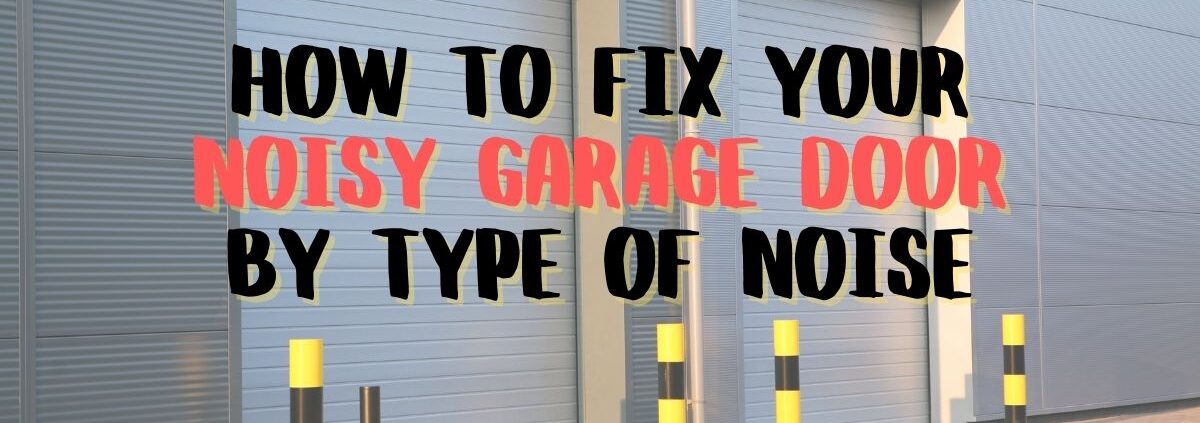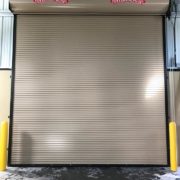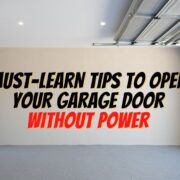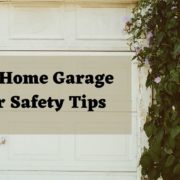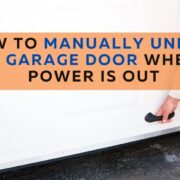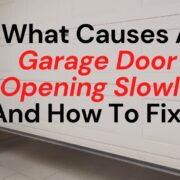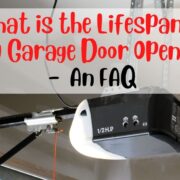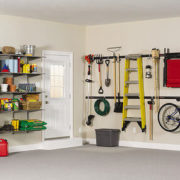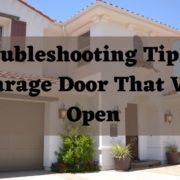How To Fix Your Noisy Garage Door By Type Of Noise
Your garage is an essential feature of your property. However, if you are dealing with a noisy garage door as it opens and closes, you should fix it immediately. It may require garage door maintenance or repairs. A property owner like you must not ignore those screeching and grinding sounds you hear.
With some fixes and consistent maintenance, you can prevent unwanted garage door noises from occurring. Inspect your garage door first to locate the cause of the noises before repairing the issue on your own. Remember, garage doors are weighty and pressurized, so DIY repairs can be dangerous.
While you can do minor mendings to help keep your overhead door working well, some door issues will require you to seek help from a professional garage door technician. Read on to learn tips on how to fix a noisy garage door.
Before You Begin the Repair Job…
Before fixing your noisy garage door, please make sure to protect yourself by taking the needed safety precautions. First, disconnect your garage door opener to avoid further problems if somebody tries to operate it while you’re troubleshooting the issue. And second, do not carry out any tasks that could harm or injure you. For complicated repair jobs, it is best to call a professional.
Learn to Fix Your Noisy Garage Door by Type of Noise
You hear your door squeaking, grinding, rattling, popping, or making other unusual noises. They are indeed irritating. What should you do? Well, you need to know the underlying causes of the issue. Here’s our guide on how to fix a noisy garage door.
- SQUEAKING
You can use some lubricant if you hear your garage door creating high-pitched squeaks. Grease the rollers and tracks thoroughly. Then, apply a silicone-based grease generously to the weather stripping placed at the base of the door, in between the panels, and around the frame of your overhead door.
- GRINDING
Insufficiently lubricated or deteriorated rollers will sometimes create a grinding noise. Consider applying a garage door lubricant to correct the undesirable noise. Contact a professional to replace the rollers for you if they are already worn out.
Choose nylon rollers instead of metal ones. They are more silent. On top of that, there is no need to grease nylon rollers often, which makes them more efficient than metal rollers.
Inspect the hinges on your garage doors closely. Worn-out hinges can also produce grinding or screeching noises and will have to be changed immediately to avoid unwanted accidents.
Furthermore, do not adjust, repair, or remove hinges on your own. If you take out the bottom bracket, your garage door could collapse. Again, always seek assistance from a specialist if replacing your hinges is the only option.
If the hinges are still in good shape, you can use lithium-based or silicone-based grease to silence them down. Never use WD-40 to fix the issue. This product actually takes off the grease rather than adding up lubrication.
- RATTLING
Your overhead door contains lots of nuts, bolts, and screws. Opening and closing the door create vibrations that make these parts not fixed in place over time. And loose parts can cause the entire door to rattle. The good news is, you can simply tighten all these hardware pieces with a wrench and socket set.
However, you must not adjust those parts connected to your garage door’s spring system. Keep in mind that the springs are under high tension. Reckless handling of the springs can result in injury or even death. So, calling a garage door expert is the best choice.
A garage door opener that uses a chain drive is another probable source of rattling. You may hear unwanted rattling noises once the chain has become very loose. In this situation, you will have to call in a garage door technician to secure it.
If the chain drive is not loose and is still in good shape, you can silence the rattling sound by applying some grease. But before doing so, refer to the provided garage door manual first to see if your door’s model requires a particular type of lubricant.
Chain drive openers generally create loud sounds. So, consider switching to a belt drive opener if you prefer minimal noise.
- POPPING Noises
Check the torsion spring if you hear popping noises every time you open and close your garage door. Gradually, torsion springs will start to lock up, and will eventually create big popping sounds.
Applying a lubricant product may do the trick if the torsion spring is still in good shape. However, as we mentioned earlier, repairing or adjusting torsion springs can be very risky. So it’s best to leave it to the experts.
Seek Help from a Professional
If your garage door is still producing unwanted noises after following the troubleshooting tips in this article, don’t be in two minds to let Inland Overhead Door Company deal with your door concerns. Our experienced team of specialists and technicians can absolutely find out the true cause of any garage door issue and solve it for you.
For more inquiries, or to make an appointment, contact us today. We are always available to serve you.

